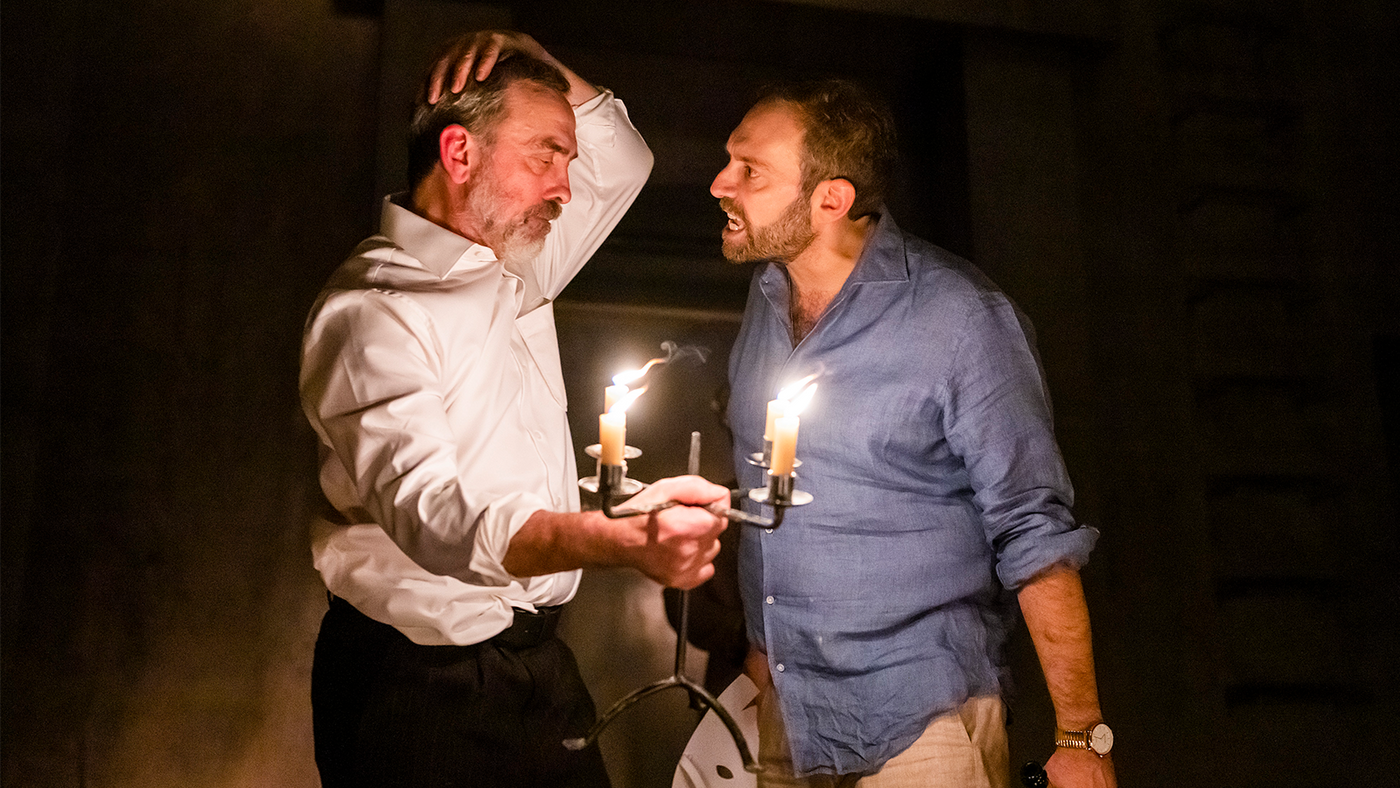The Merchant of Venice: ‘utterly tragic, yet simultaneously mesmerising’
This Shakespeare’s Globe production is set in contemporary London

A free daily email with the biggest news stories of the day – and the best features from TheWeek.com
You are now subscribed
Your newsletter sign-up was successful
In her “brilliant and uncompromising” staging of The Merchant of Venice, Abigail Graham never shies away from what this play is really about, said Oliver Ainley on What’s on Stage. Namely: “a group of entitled and pompous villains mercilessly persecuting a Jewish man”.
Set in contemporary London, the production opens with Bassiano and other City boys forcing Launcelot, Shylock’s ex-servant, to down a shot every time he says the word “Jew”. Then, in the final scene, as the Christians celebrate their court triumph, their dialogue fades and is drowned out by a mournful Hebrew lament. In this way, the happy-ever-after ending, with the restoration of rings to their rightful owners, is ripped away and our attention is focused on Jessica and Shylock, her destroyed father. “It is utterly tragic, yet simultaneously mesmerising.”
Shylock is played by Adrian Schiller with “heart-wrenching” dignity, said Kate Wyver in The Guardian. His is no “miserly, comic stereotype”, said Donald Hutera in The Times; he is a “sober, considered and much abused figure” who has grown accustomed to the constant vitriol he faces, and who is able to keep his emotions in check. Although Schiller “never begs for it, our sympathy lies unwaveringly” with the moneylender. And while some purists may object to the way Graham has made this unambiguously “Shylock’s show”, the fact is: “it works”.
The Week
Escape your echo chamber. Get the facts behind the news, plus analysis from multiple perspectives.

Sign up for The Week's Free Newsletters
From our morning news briefing to a weekly Good News Newsletter, get the best of The Week delivered directly to your inbox.
From our morning news briefing to a weekly Good News Newsletter, get the best of The Week delivered directly to your inbox.

I disagree, said Marianka Swain in The Daily Telegraph. Graham’s approach is “conceptually interesting”, but “in taking such pains to humanise” Shylock, she “renders everyone else monstrous” and therefore dull. Antonio comes across as a “one-note, white-supremacist thug” and even Portia (Sophie Melville) is “openly racist”, though we’re “left in no doubt that she is a grim victim of the patriarchy”.
It’s all a bit confusing and dissonant, said Andrzej Lukowski in Time Out. It does “pay off with that stupendous final scene, a suffocating wave of anti-Semitic horror. But it’s a bumpy journey to get there.”
Sam Wanamaker Playhouse, Shakespeare’s Globe. Until 9 April
A free daily email with the biggest news stories of the day – and the best features from TheWeek.com
-
 What to know before filing your own taxes for the first time
What to know before filing your own taxes for the first timethe explainer Tackle this financial milestone with confidence
-
 The biggest box office flops of the 21st century
The biggest box office flops of the 21st centuryin depth Unnecessary remakes and turgid, expensive CGI-fests highlight this list of these most notorious box-office losers
-
 The 10 most infamous abductions in modern history
The 10 most infamous abductions in modern historyin depth The taking of Savannah Guthrie’s mother, Nancy, is the latest in a long string of high-profile kidnappings
-
 A thrilling foodie city in northern Japan
A thrilling foodie city in northern JapanThe Week Recommends The food scene here is ‘unspoilt’ and ‘fun’
-
 Tourangelle-style pork with prunes recipe
Tourangelle-style pork with prunes recipeThe Week Recommends This traditional, rustic dish is a French classic
-
 Samurai: a ‘blockbuster’ display of Japan’s legendary warriors
Samurai: a ‘blockbuster’ display of Japan’s legendary warriorsThe Week Recommends British Museum show offers a ‘scintillating journey’ through ‘a world of gore, power and artistic beauty’
-
 BMW iX3: a ‘revolution’ for the German car brand
BMW iX3: a ‘revolution’ for the German car brandThe Week Recommends The electric SUV promises a ‘great balance between ride comfort and driving fun’
-
 Arcadia: Tom Stoppard’s ‘masterpiece’ makes a ‘triumphant’ return
Arcadia: Tom Stoppard’s ‘masterpiece’ makes a ‘triumphant’ returnThe Week Recommends Carrie Cracknell’s revival at the Old Vic ‘grips like a thriller’
-
 My Father’s Shadow: a ‘magically nimble’ love letter to Lagos
My Father’s Shadow: a ‘magically nimble’ love letter to LagosThe Week Recommends Akinola Davies Jr’s touching and ‘tender’ tale of two brothers in 1990s Nigeria
-
 Send Help: Sam Raimi’s ‘compelling’ plane-crash survival thriller
Send Help: Sam Raimi’s ‘compelling’ plane-crash survival thrillerThe Week Recommends Rachel McAdams stars as an office worker who gets stranded on a desert island with her boss
-
 Book reviews: ‘Hated by All the Right People: Tucker Carlson and the Unraveling of the Conservative Mind’ and ‘Football’
Book reviews: ‘Hated by All the Right People: Tucker Carlson and the Unraveling of the Conservative Mind’ and ‘Football’Feature A right-wing pundit’s transformations and a closer look at one of America’s favorite sports